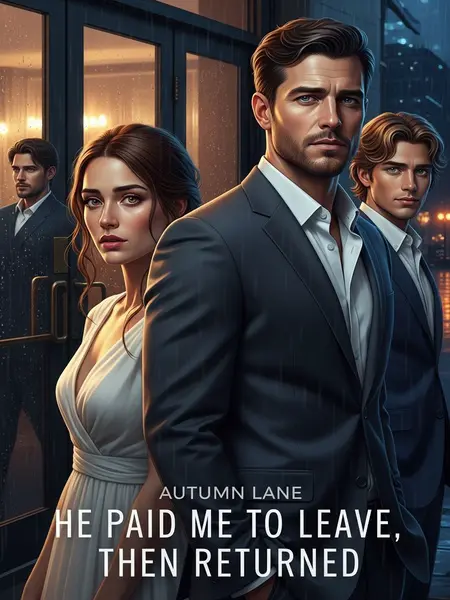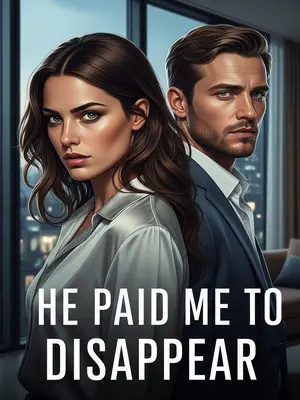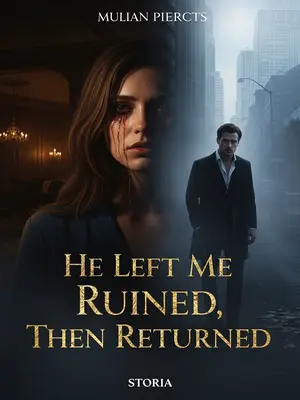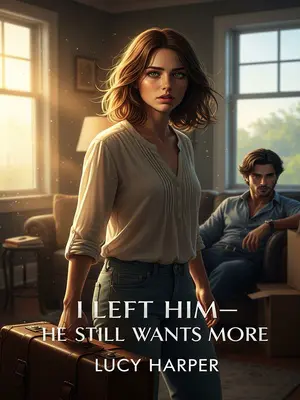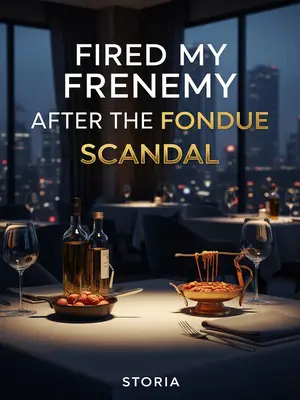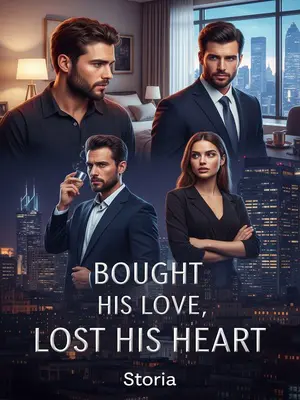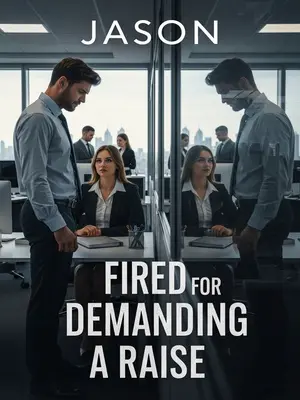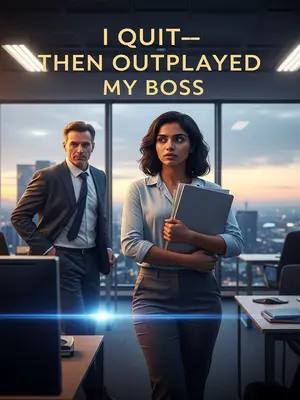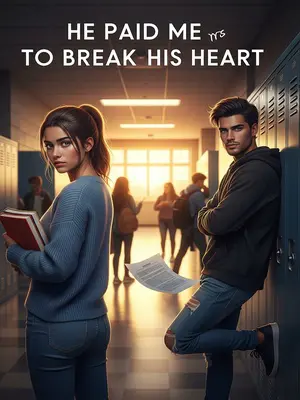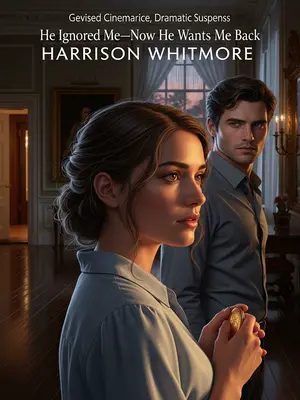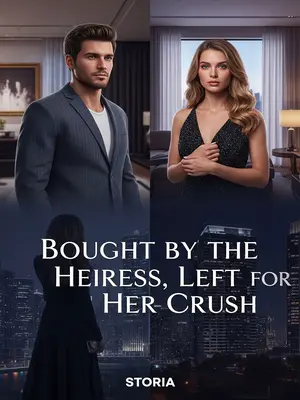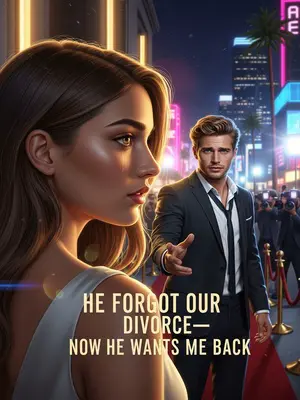Chapter 3: His Hunt Begins
I had dated Marcus Whitlow.
Four years ago.
Back then, he came to see my play—with a date in tow.
The theater was buzzing that night. A sold-out crowd. I remember spotting him from the stage, his profile caught in the glow of the house lights, a woman beside him dressed in something expensive and impossibly chic.
After the performance, the director found out Marcus Whitlow was in the audience and nearly lost his mind. He personally led us backstage to meet him and insisted on inviting him to dinner.
The director was practically bouncing with excitement, his hand clamped on Marcus’s shoulder like he was afraid he’d vanish. Everyone knew Marcus’s name—old money, new power, the kind of guy who could bankroll an entire season without blinking.
He was about to decline, but then his eyes met mine from behind the director, and for a moment, he just… paused. There was this beat of silence, a subtle shift in the air. I felt his gaze linger, sharp and curious, and something inside me tightened—like static before a summer storm.
He turned to his companion and, ever the gentleman, said, "I’ll have the driver take you home first."
His voice was smooth, practiced. The kind of tone that didn’t invite argument, but still sounded polite enough to keep up appearances.
The girl let out a soft, surprised “oh,” glancing up at us. She probably wanted to join but didn’t dare say so, so she just dropped her gaze and forced a polite, understanding smile. “Okay.”
I could see the disappointment in her eyes, the way her shoulders drooped just a little. She was trying so hard not to let it show, but it was written all over her face.
Honestly, my first impression of Marcus wasn’t great. He was too cold and distant, always acting like he was above it all.
He radiated that effortless arrogance you only get from never having to chase anything in your life. Even his compliments felt like they came with a checklist.
Even though he seemed gentle and easygoing on the surface, there was this built-in sense of superiority that made people squirm.
He spoke softly, smiled at all the right moments, but there was a wall behind his eyes—a cool calculation that put everyone on edge.
His companion seemed reluctant to leave, but Marcus just smiled and said, almost dismissively, “I’ll contact you later.”
There was a finality in his words, a gentle dismissal that left no room for protest. She nodded, but I could tell she knew what that meant.
I watched from the sidelines, knowing full well he’d never contact her again.
It hit me then—a mix of pity and annoyance. I’d seen this play out before: girls hoping for a second call that never came.
Her disappointment was written all over her face, but Marcus would never reach out—he couldn’t be bothered. He never looked back.
He was the type to close doors quietly, never glancing over his shoulder. For him, loose ends were just clutter to be swept away.
Someone like him, with too many people offering up their hearts, would never really know how to cherish any of them.
I could see it in the way he moved—untouchable, almost bored. People were distractions, not destinations.
I figured he changed his mind about dinner because I’d become his new challenge.
I wasn’t naïve. I knew that look in his eyes. The way he sized me up—a hunter spotting something rare in the woods.
When our eyes met, I caught that spark—the look he got when he was on the hunt.
It was subtle, but I knew. Suddenly, the air was charged. I was next on his list.
But Marcus never showed his interest openly. He was always like this—an expert at catching his target without ever making a sound.
He played the long game, never tipping his hand. It was almost impressive, if it wasn’t so manipulative.
Dinner was pretty ordinary, even though the director spared no expense to impress him. The food was fancy, but the vibe was tense. I remember thinking, the wine’s good, but the company’s exhausting.
The restaurant had white tablecloths and too-bright lights. The director kept shooting hopeful glances at Marcus, desperate for approval. The rest of us played along, laughing at the right moments, sipping expensive wine.
But Marcus didn’t care much for the fancy spread. When the director led a toast, he looked at me, almost absentmindedly, and asked, “What’s your name?”
His voice cut right through the chatter, making everyone pause. I felt the attention shift, a dozen eyes waiting for my answer.
I replied politely, keeping my distance. “Autumn Lane.”
I kept my tone even, careful not to give anything away. My hands folded in my lap, my smile polite but not inviting.
He raised his eyebrows at my name and asked, "Autumn—the season. 'Long Day’s Journey Into Night' fan?"
I caught the literary reference, but shook my head, a small, knowing smile tugging at my lips. “No, I don’t have a mother like Mary Tyrone. My name comes from a poem—‘The world below, lost in the autumn mist.’” Honestly, I always thought Marcus was a little pretentious with his references, but I played along.
For a second, his cool composure cracked—a flicker of surprise in his eyes. Not many people pushed back, or showed him they were more than just a pretty face.
Marcus seemed surprised, glancing at me like he hadn’t expected any pushback, or maybe just surprised I wasn’t another girl hoping for his attention.
He studied me, curiosity sharpening his gaze. I could almost see the wheels turning—was I worth the effort?
Marcus wasn’t your typical rich playboy. His arrogance and education were baked in, passed down like the family silver. It was in his bones—he wore privilege like a second skin, never showy, but impossible to miss.
The dinner didn’t last long. Marcus checked his watch and left early. After the director saw him off, the rest of us lingered with some awkward small talk, then drifted out.
I remember the hush that settled after he left—like someone had let the air out of the room. People started whispering, already spinning stories about what he’d thought of the play, the food, the company. I just wanted to get out of there.
I strolled slowly to the curb to wait for a rideshare, when a sleek black Tesla pulled up beside me. The window rolled down—it was Marcus, who should have left earlier. Under the streetlight, his face looked almost cinematic—handsome, distant. "Miss Lane, what a coincidence. Let me give you a ride home?"
The city lights made his features look almost unreal, like something out of a movie. I hesitated, clutching my purse, debating whether to get in or just keep waiting for my ride.
I looked him in the eye. Suddenly, I laughed, daring to ask, “Mr. Whitlow, isn’t your companion still waiting for your call?”
The words came out before I could stop them—bold, a little reckless. I wanted to see if he’d flinch, if anything could rattle that perfect composure.
Marcus raised his eyebrows, not angry, just surprised. After a moment, the corners of his mouth lifted in a tiny, knowing smile.
He seemed almost amused, like I’d just passed some kind of test. The tension between us shifted—subtle, but there.
After that, he started pursuing me. I’d be lying if I said I wasn’t skeptical at first. He wasn’t exactly subtle about it, either—a slow burn of texts, chance meetings, invitations that were just a little too perfect. Sometimes it felt like a montage: flowers, notes, him popping up everywhere I went.
At first, people at the theater were shocked, then envious, then jealous. Some made snarky comments about me marrying into money, and even the director started treating me with a weird kind of respect.
Rumors swirled like autumn leaves—whispers in the dressing room, side-eye glances in the hallway. Someone said, "Watch, she’ll be driving a Tesla next week." I rolled my eyes, pretending not to care, but the pressure was real.
Flowers flown in, jewelry, concert tickets—he tried everything.
My dressing room looked like a florist’s shop most days. The jewelry, the notes, the invitations—each one felt more like a dare than a gift.
I turned down everything. Maybe no one had ever refused him so completely. Marcus was the golden boy—outwardly gentle, but really all about conquest and possession. My resistance just made him more determined.
He seemed fascinated by my refusal. Like I was a puzzle he couldn’t quite solve. The more I pushed back, the more relentless he became.
After I shot him down again, he suddenly laughed. He was always so handsome and poised, but that day he looked at me coolly and said, “Miss Lane, I admit I’m interested in you, but playing hard to get for too long just gets annoying.”
There was a chill in his voice, a warning under the charm. He didn’t like games he couldn’t win.
I burst out laughing, holding his gaze. “Then just think of me as someone who’s overdone the hard-to-get act, Mr. Whitlow.”
My laughter bounced off the walls—light, but with an edge. For the first time, I saw uncertainty flicker in his eyes.
That was the first time I saw him look so defeated. For a split second, I almost felt sorry for him. But then he smiled, no longer looking down from on high. I caught surprise and curiosity in his eyes. “I underestimated you,” he said.
It was a rare moment of honesty, and for a second, the tension between us softened—felt almost normal.
After that, he kept pursuing me, but the grand gestures stopped. Sometimes he’d drive himself to pick me up at the theater, sometimes invite me to familiar restaurants. No more flowers, just quiet persistence. Honestly, it was almost sweet—almost.
He always kept just the right distance—not pushy, polite but persistent. Sometimes I’d say yes to dinner.
Those dinners were comfortable, easy. We talked about books, art, the city. For a while, I let myself forget who he was outside those moments. Still, there was always a little voice in my head: Don’t get used to this. Don’t forget who he really is.
Beneath that cold exterior, he could be charming—handsome, wealthy, well-read, funny in a dry way. He was the perfect gentleman—as long as you didn’t fall for him.
There was a warmth to him when he let his guard down, a sense of humor that caught me off guard. Sometimes, when he laughed, I almost forgot to be careful. Almost.
Gradually, we almost felt like ordinary friends, until one day he asked, "Why don’t you like me?"
He caught me off guard with the question. His voice was soft, but insistent. It was the first time I’d seen him even a little bit vulnerable.
Under the restaurant’s sparkling chandelier, there was nowhere to hide. His hair fell a little over his forehead, softening his sharp features, making him look almost gentle as he focused on me.
The world shrank to just our table, the clatter of silverware fading. For a moment, it felt like we were the only two people in the room.
He was always in control, but maybe this was the first time he’d lost his grip—and he wanted to understand why.
I could see the frustration in his eyes, the need to know why he couldn’t win me over like everyone else.
I hesitated, took a sip of water to cover, then smiled. “So many people like you, and I’m the only one who slipped through the net. Why are you so hung up on me, Mr. Whitlow?”
My words were light, but my heart was pounding. I wanted to know, too.
He gave me a look I couldn’t read. Then he raised his glass, his expression determined. “But you’re the only one I want.”
The words landed with a weight I didn’t expect. For the first time, I saw something real in his eyes—a flicker of longing, a vulnerability he usually kept hidden.
After that, I started avoiding him.
I told myself it was for the best, that nothing good could come from getting too close. But God, I missed him more than I wanted to admit. Ha. I was a mess.
